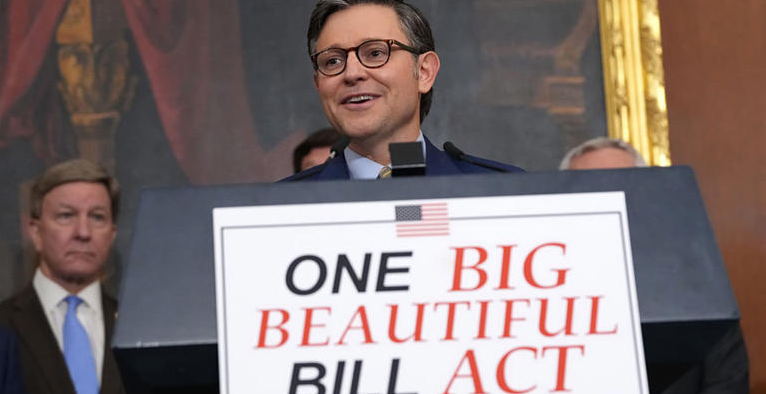It is a political monument, a monument to overconfidence, baptized with the name of a marketing promise: The One Big Beautiful Bill Act. Donald Trump announced it as a masterpiece of fiscal policy – but within his own ranks, the consensus is crumbling. While the United States' mountain of debt has swollen to nearly 37 trillion dollars, the Senate is now wrestling with a bill that, according to the Congressional Budget Office, may indeed produce savings of 1.5 trillion dollars, but at the same time could cause new debt of over three trillion. Some, like Thomas Massie, even fear a deficit of up to 20 trillion in the next ten years. A masterpiece of self-deception.
At the center of this drama are senators like Rand Paul and Ron Johnson, who are refusing political allegiance to the bill. Their criticism is not quiet, but frontal: the savings are “wimpy and anemic” – bloodless and timid. Paul is demanding cuts in areas previously considered sacrosanct, including Medicaid and Social Security. But it is precisely there that Trump himself draws the red line. For him – and for Missouri Senator Josh Hawley – it would be “morally wrong and politically suicidal” to jeopardize health care for the working poor. A battle is now raging between the two camps, one that is not only ideological but has become personal. Trump himself responded over the weekend – not with arguments, but with an attack. If Rand Paul votes against the bill, the president wrote on Truth Social, “the GREAT people of Kentucky will never forgive him.” A warning that leaves nothing to be desired in clarity - and one that reveals the new face of Republican discipline: dissent is seen as betrayal, fiscal honesty as weakness.
But the administration's numbers are also on shaky ground. Press Secretary Karoline Leavitt recently presented her own calculation: 1.6 trillion dollars in savings over ten years - the largest savings ever passed on Capitol Hill. The difference from the Congressional Budget Office’s analysis? Leavitt simply called its assumptions “shoddy” - sloppy - and the entire methodology bipartisanly inadequate. A remarkable delegitimization of an institution on which Congress has relied for decades. Meanwhile, the tone in the Senate is intensifying. Three dissenting votes could sink the bill - and Rand Paul already speaks of four. Should the text be amended, the draft would have to return to the House of Representatives, where it was previously passed by only one vote. A path back that is as dangerous as the one forward. Speaker Mike Johnson assures that the bill will not increase the debt, yet at the same time it provides for a raise of the debt ceiling by four trillion dollars - the highest jump in U.S. history. “The GOP will own the debt,” Paul says, voicing what many are only thinking.
Even Elon Musk has now distanced himself from the architecture of the bill. The tech billionaire, whose special adviser role at the White House ended after 130 days, said in an interview with CBS: “A bill can be big or it can be beautiful. But I don't know if it can be both.” It is a gentle but clearly worded rejection - of a bill that offers more pathos than substance. What remains is a spectacle of political self-deception. Trump is trying to score points with gigantism - with a bill that simulates greatness and claims beauty. But the foundation is porous. The party is torn within itself, between applause machinery and economic reality, between loyalty to the president and responsibility to future generations. Perhaps Senator Ron Johnson said it most clearly: “I'm trying to interject reality. I'm trying to interject facts and figures. And they're on my side.” Whether that's enough - in an era that confuses greatness with power and truth with sentiment - remains to be seen.
